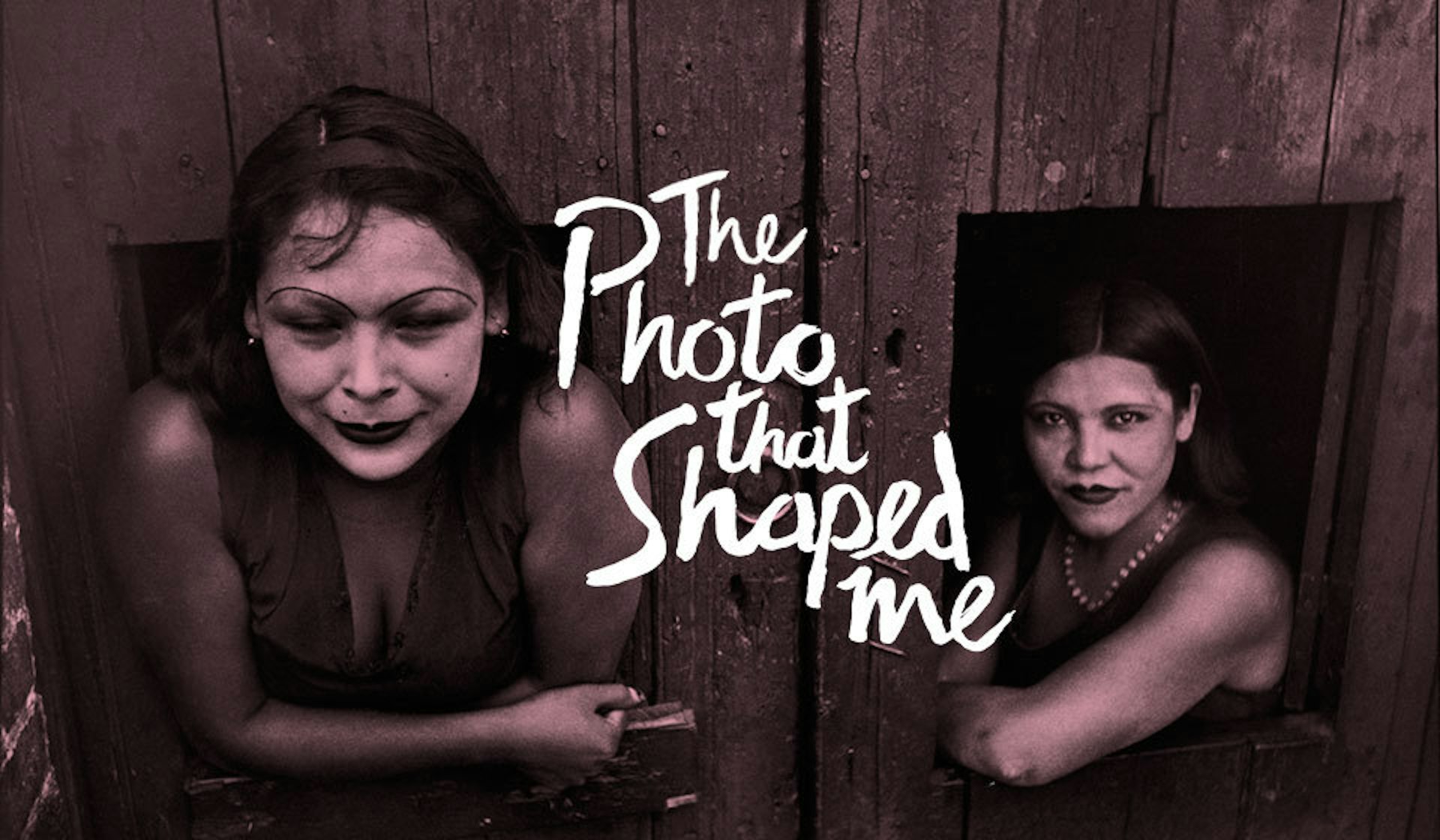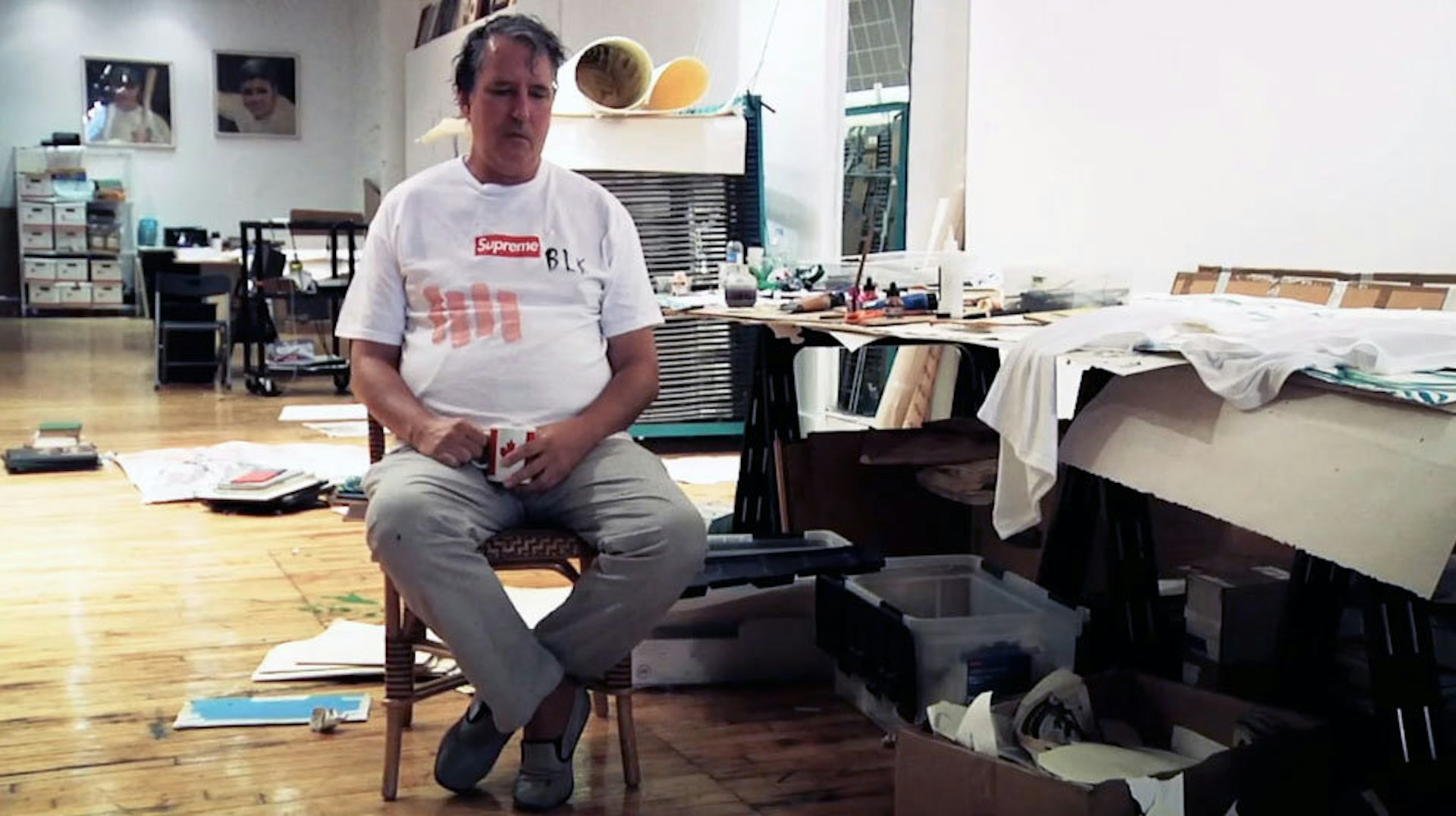
Mary Ellen Mark
- Text by Shelley Jones
- Photography by Henri Cartier-Bresson / Magnum Photos
To celebrate Huck 46: The Documentary Photography Special II, our annual celebration of visual storytelling, we are having a Huck website takeover – Shoot Your World – dedicated to the personal stories behind the photographs we love.
In this regular series, The Photo That Shaped Me, we ask photographers to choose a photo taken by someone else that’s had the greatest impact on their career, and share the story behind what that shot means to them.
First up, is photographer of the dispossessed Mary Ellen Mark, who chose Calle Cuauhtemoctzin, Mexico City, 1934 – a photograph of two prostitutes in Mexico – by Henri Cartier-Bresson.
The Photo That Shaped Me
by Mary Ellen Mark
“I’ve owned this photograph by Henri Cartier-Bresson for a long, long time. I have a lot of his prints. He was an incredible photographer, and when I first saw this picture I just thought it had all the elements in it for me.
It’s really hard to pinpoint what makes an image iconic, but this one is exactly that. First of all it talks to you – you immediately know that the women are prostitutes, you just know it. It’s in their attitudes. There is a sense of scale between the women – one leaning out towards the camera, one leaning back, both looking out of these little portals. The attitude is so seductive.
I actually don’t remember the first time I saw the photo, but it’s from my favourite period of Bresson’s photographs, which is his surrealist period. I’m not sure if it’s in The Decisive Moment or The Europeans, but I got both those books when I graduated the University of Pennsylvania in 1964 and they were such a revelation to me. Bresson had such an incredible eye but his pictures were so human at the same time. Often street photography is very graphic, and not very emotional, but his was both. He went for the decisive moment and he was completely able to sum up an entire situation in one photograph. He really was the ultimate, great street photographer in the sense that he was a visionary – he saw things before they happened. He probably made more iconic images in his lifetime than anybody else ever.
I’m not sure whether seeing this photo encouraged me to shoot my work on prostitutes – when I went to India in the late ‘60s and saw Falkland Road I just knew I wanted to photograph there. But I think more than anything this picture inspired me to try and reach a level. I mean no one can be at his level, he really is the master of the universe, but he inspired me to know what great work is. When you’re starting out as a photographer I think it’s important to look at what’s come before you, work that’s really great, and analyse it, and get a sense of what makes it important.
Bresson is still so inspiring. Especially because things have changed so much in the world of photography. He’s the ultimate realist because he always went for the real decisive moment. And now digital technology does a lot of the work, and things are all so altered, and a lot of that sense of reality is forgotten. When I started out it was all about the power of reality, and it still is for me. Touching a moment. Capturing a moment in time.”
